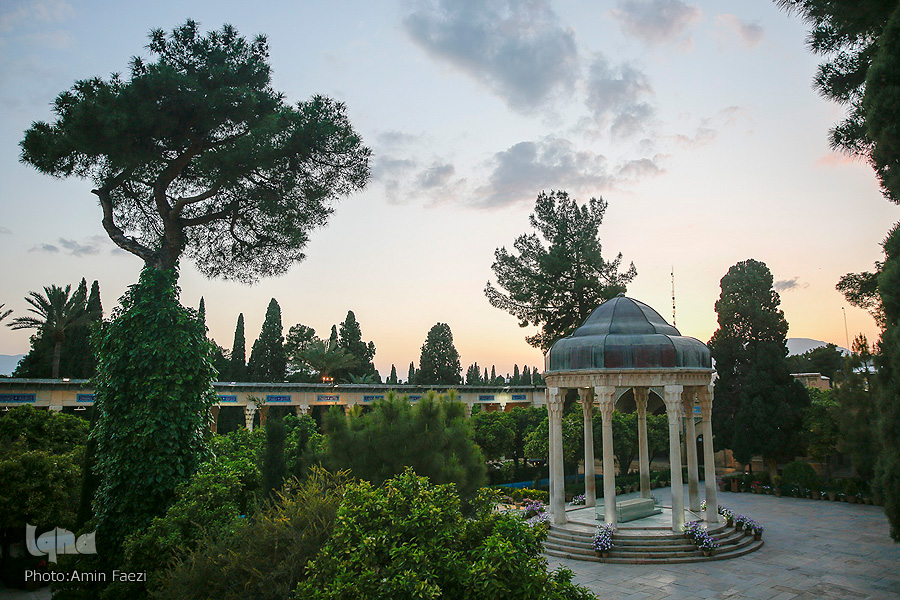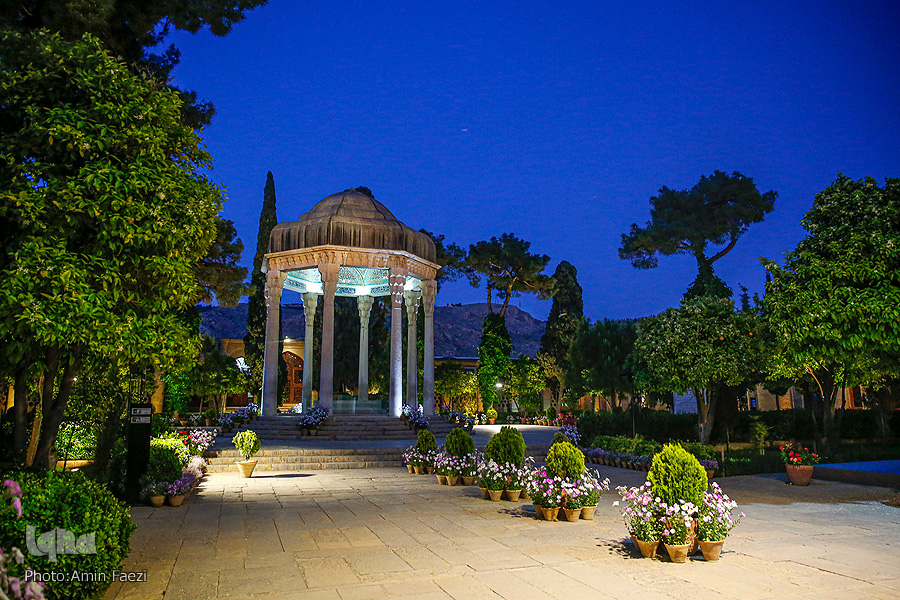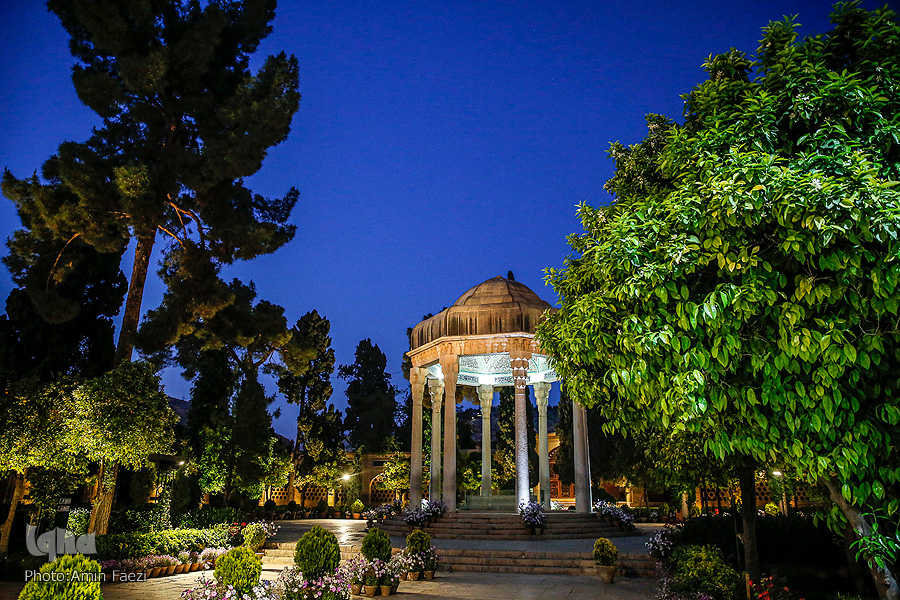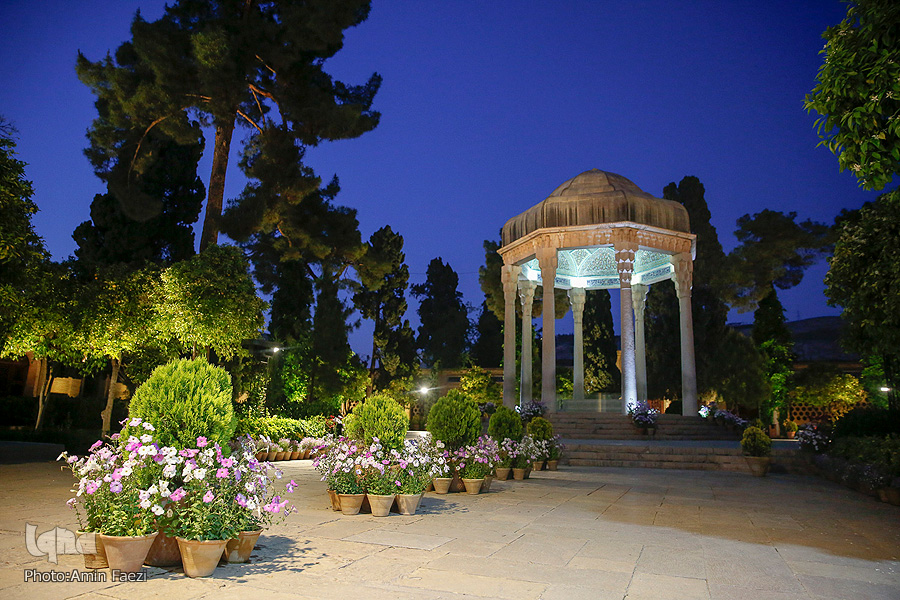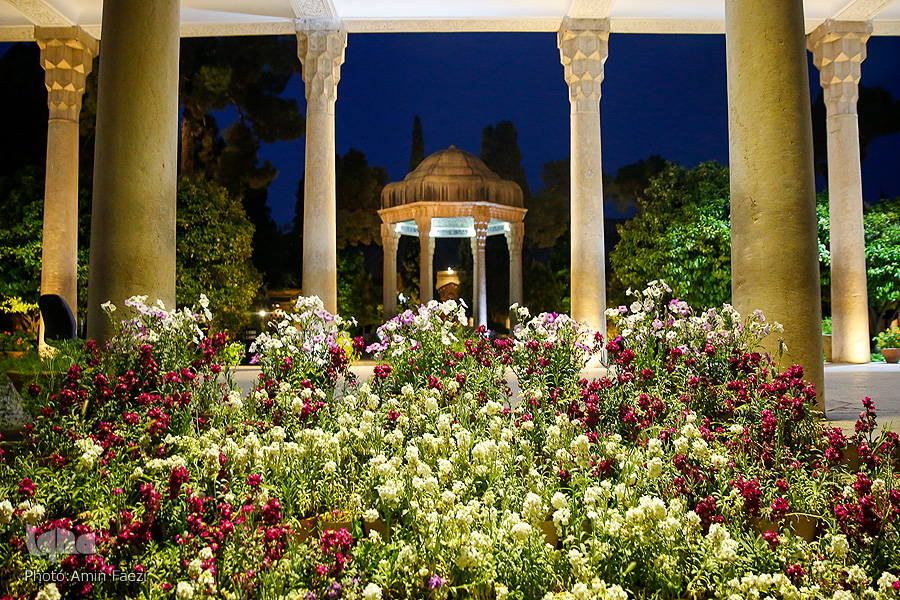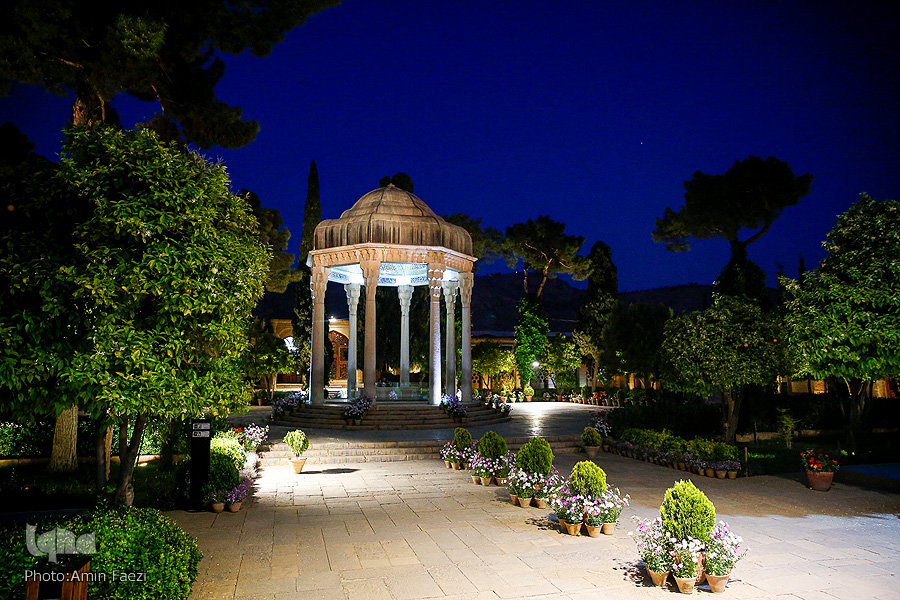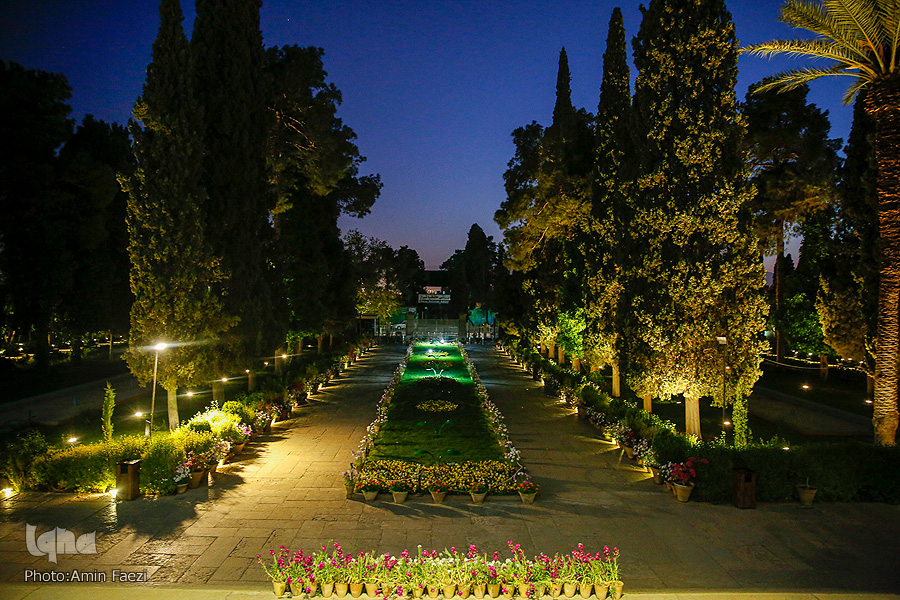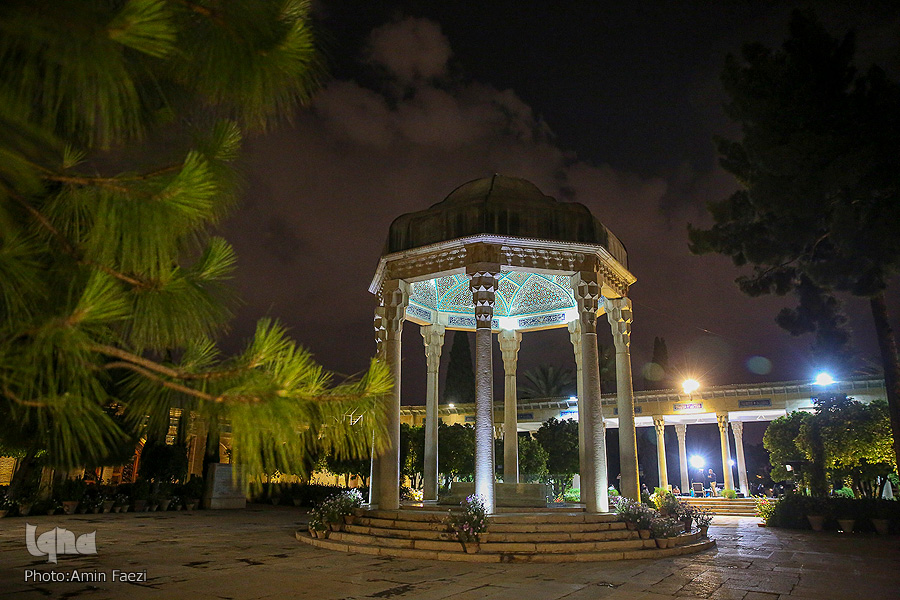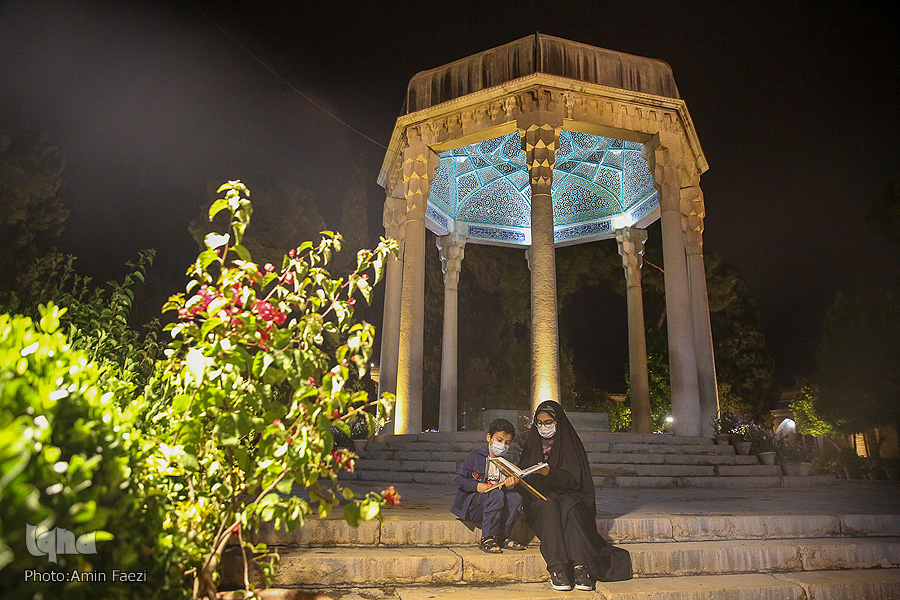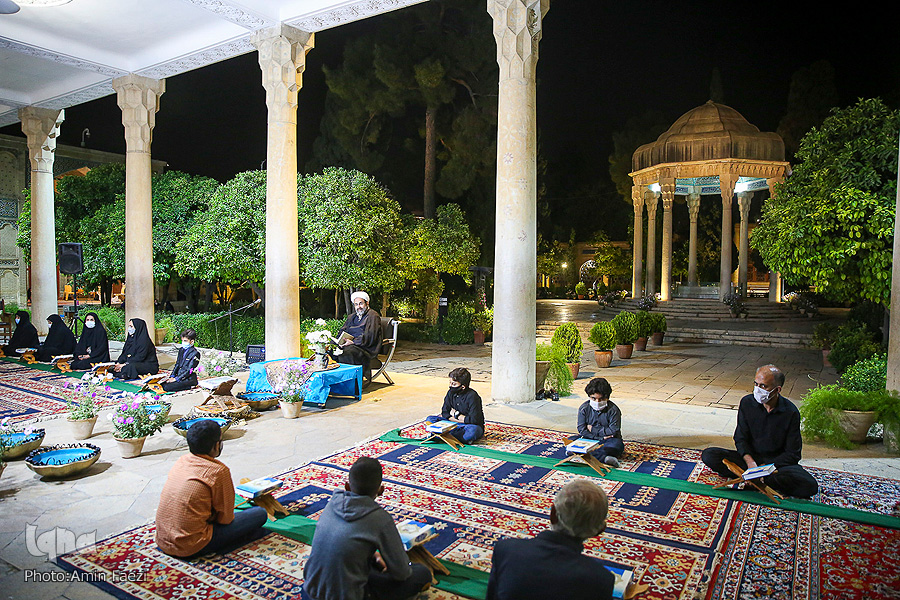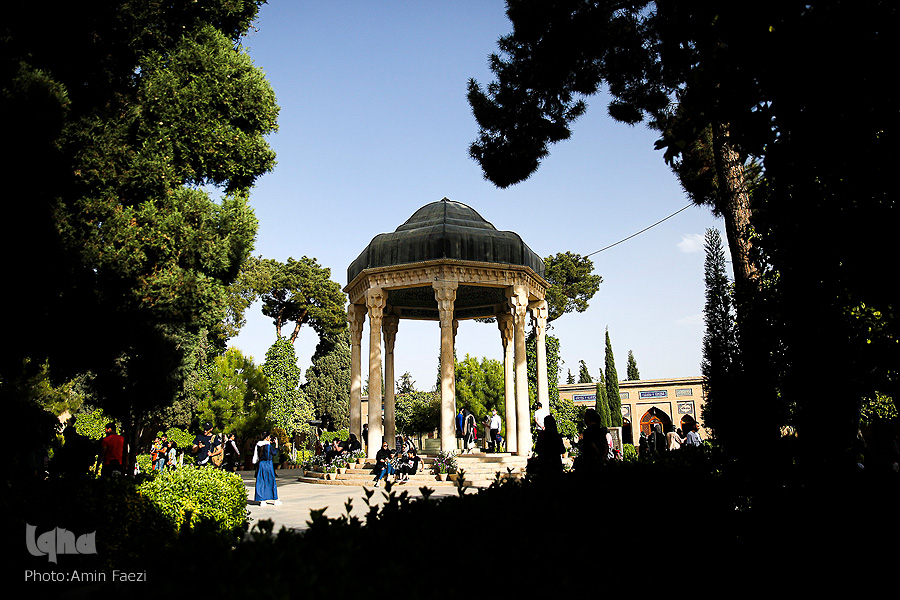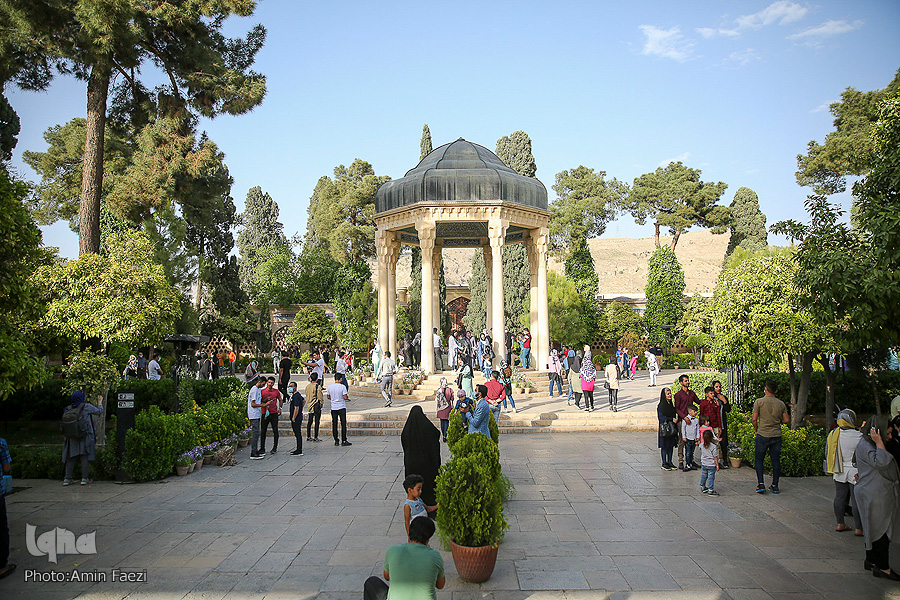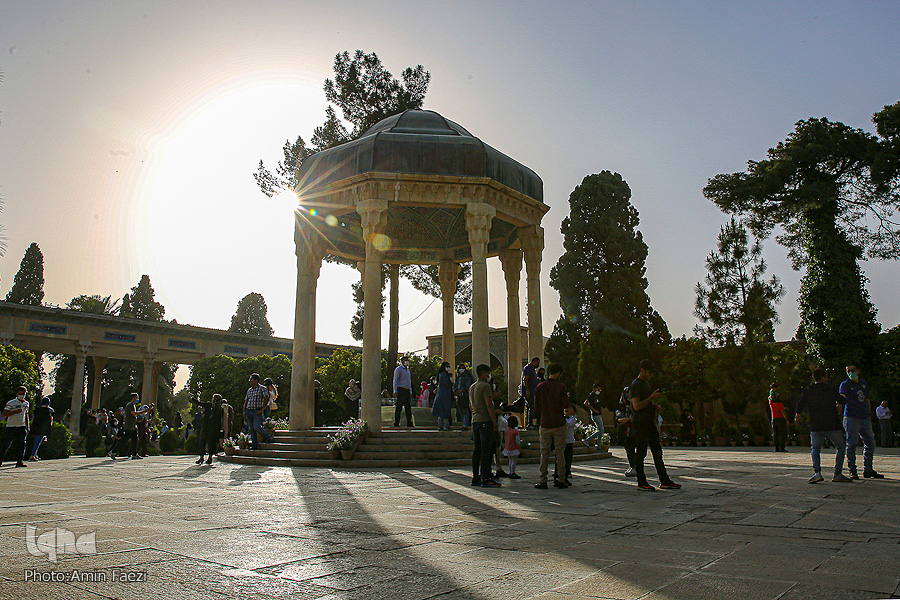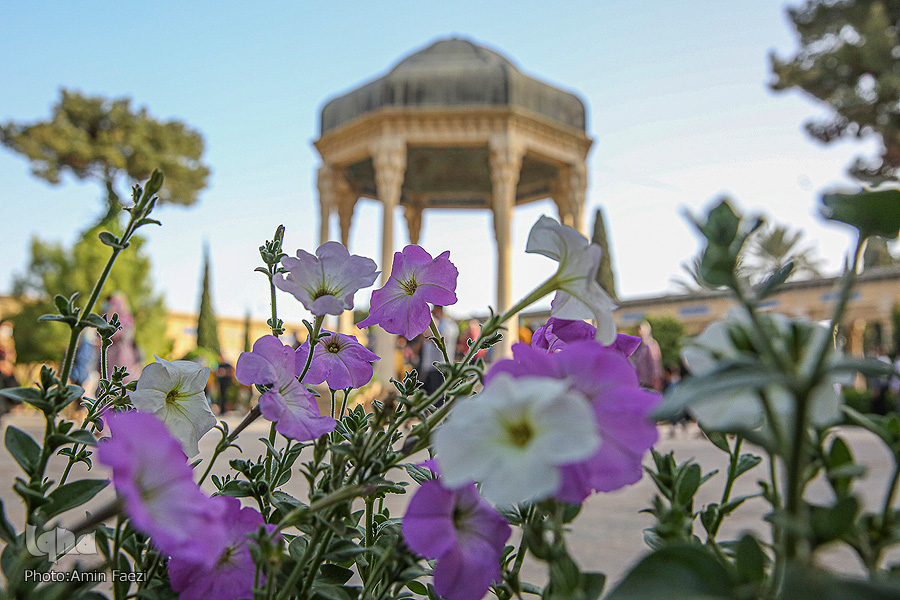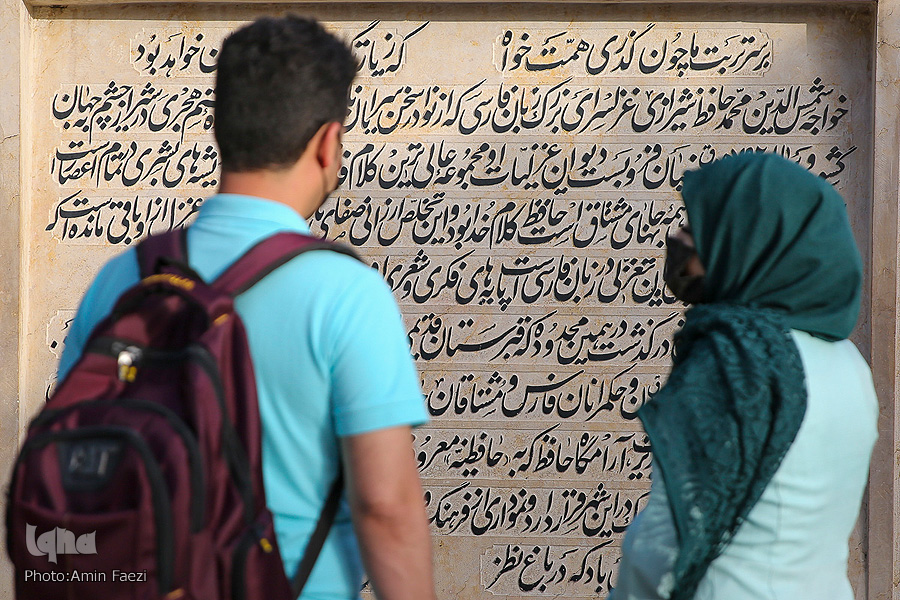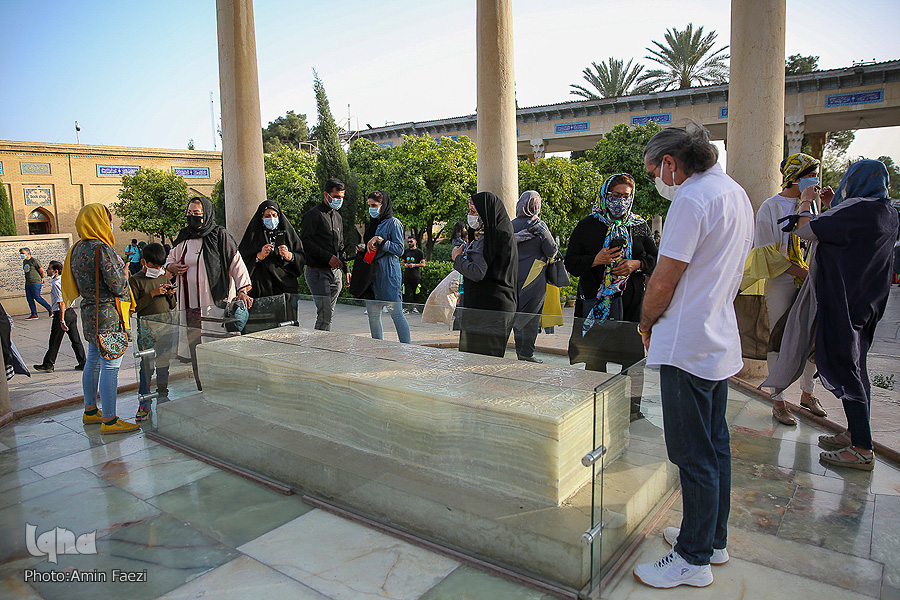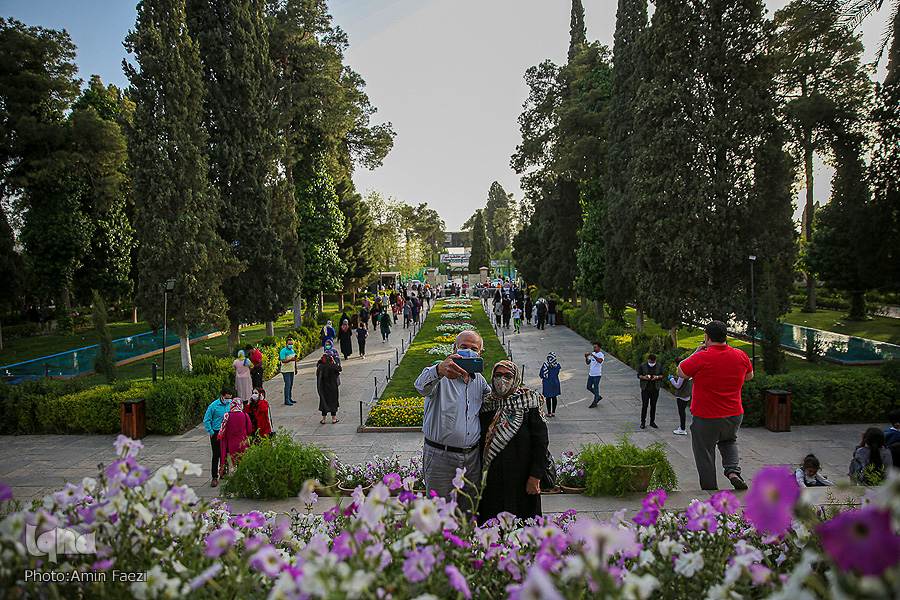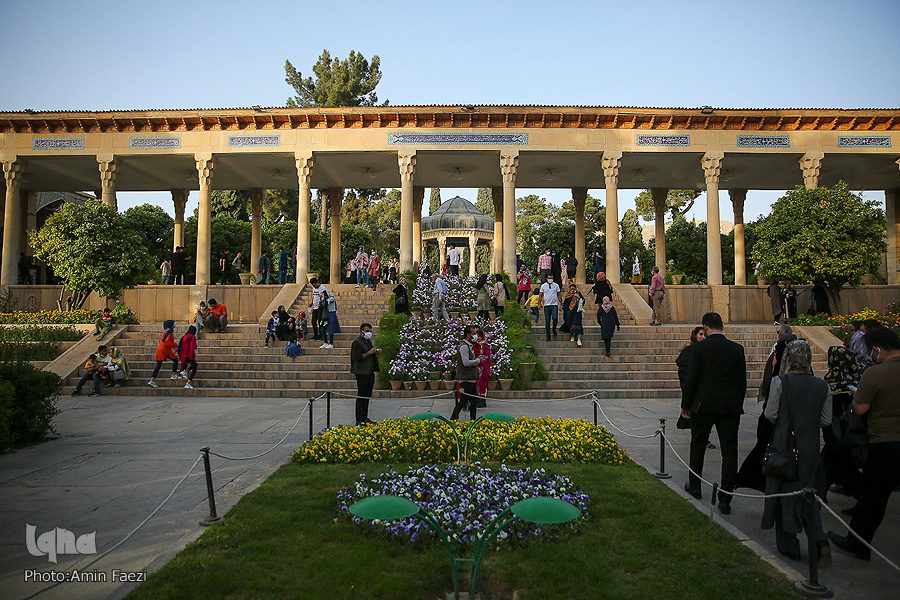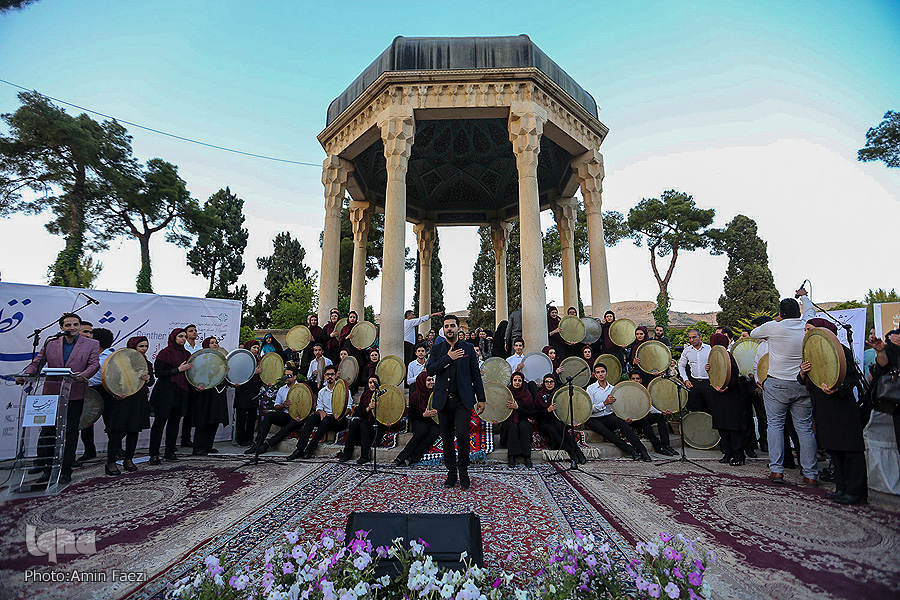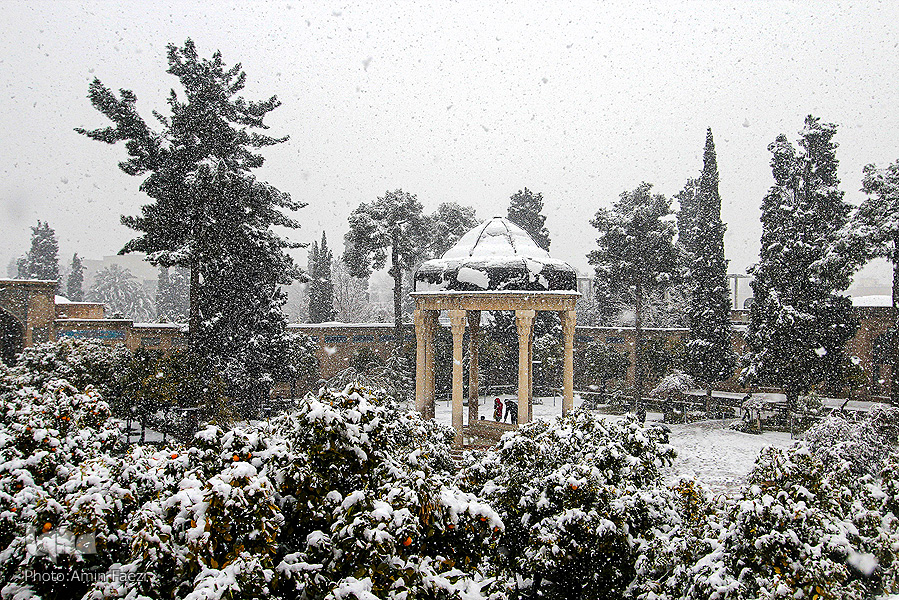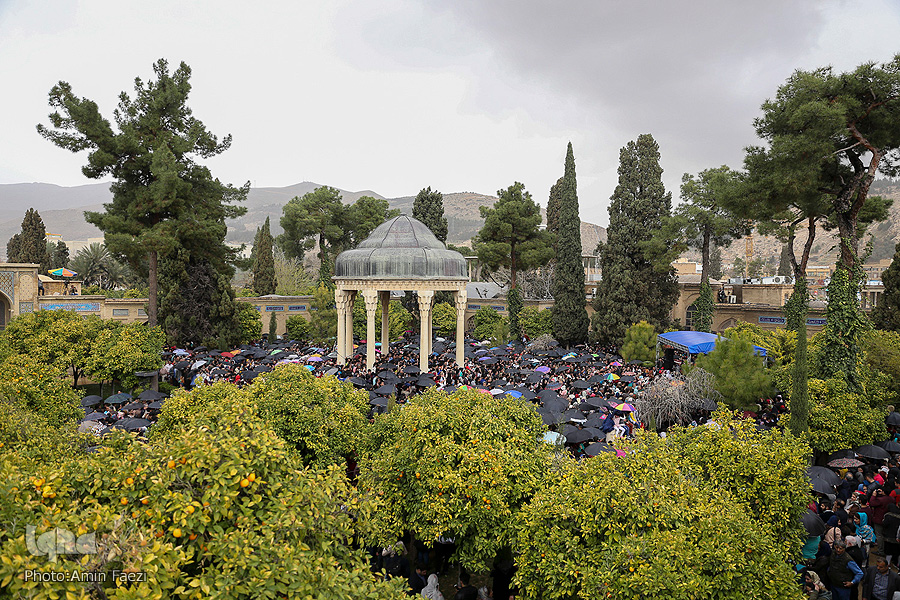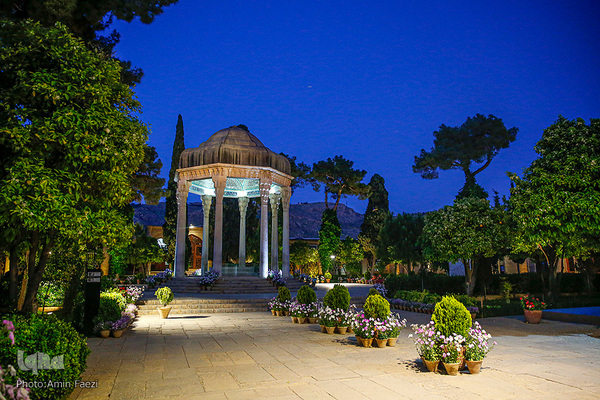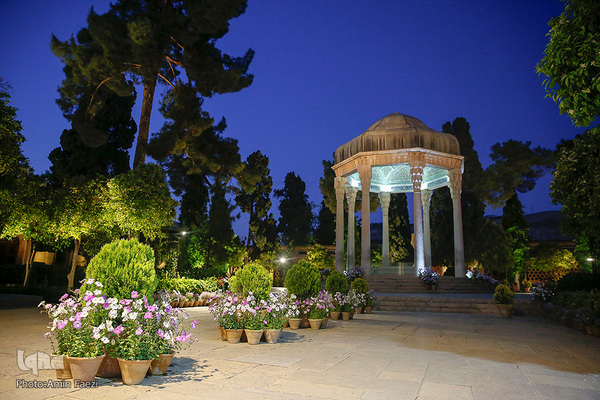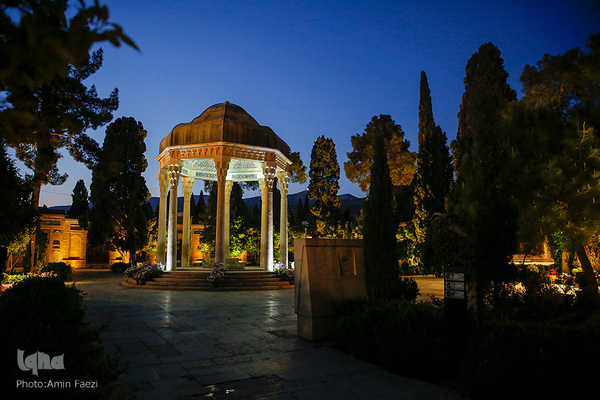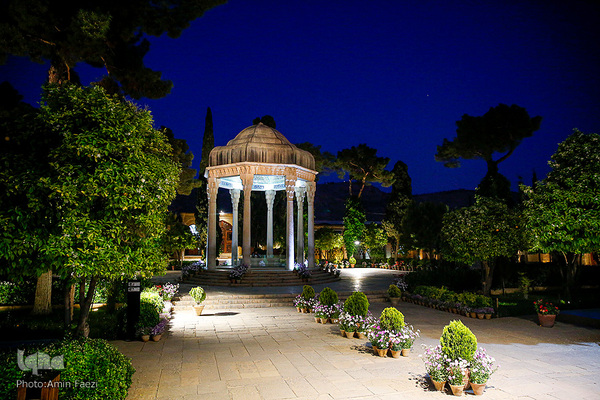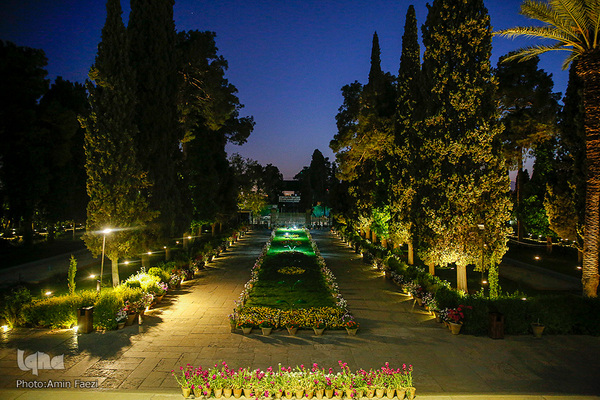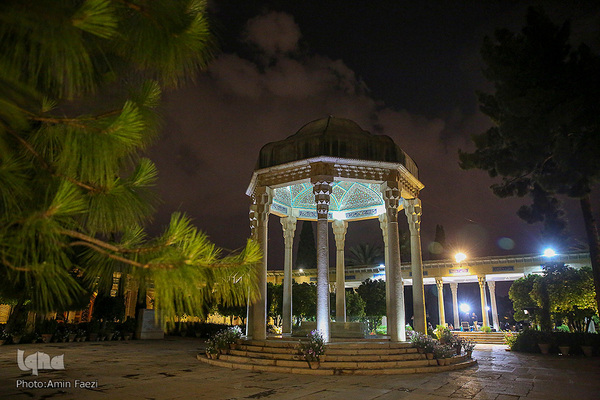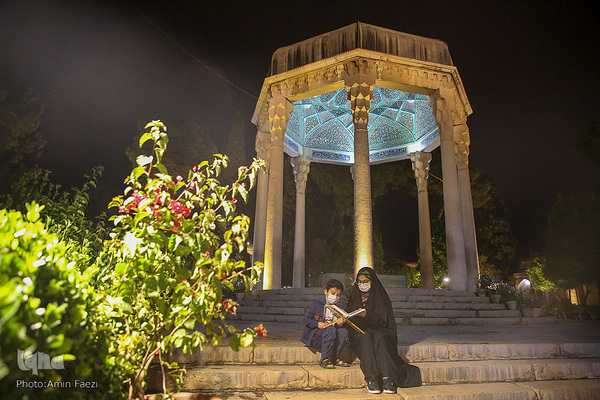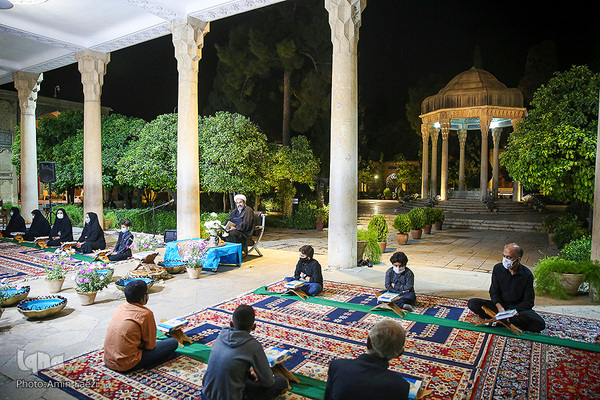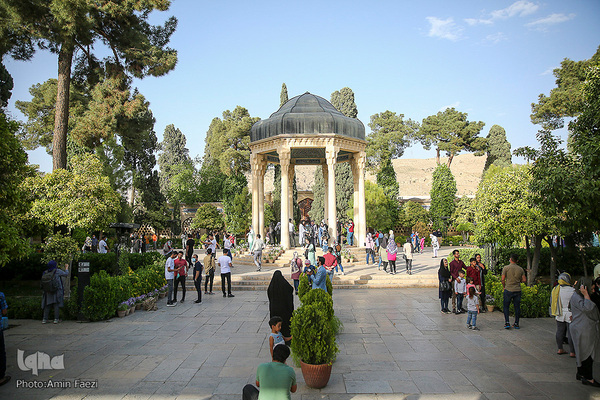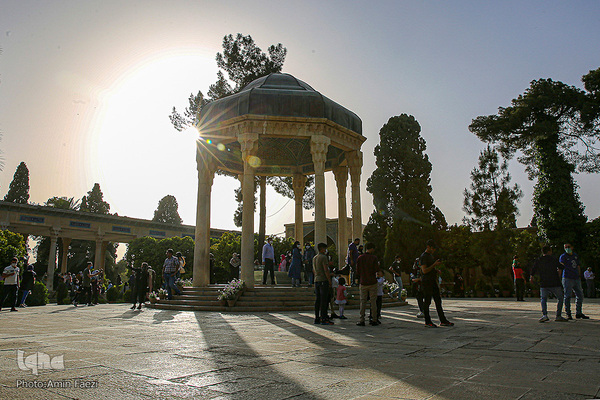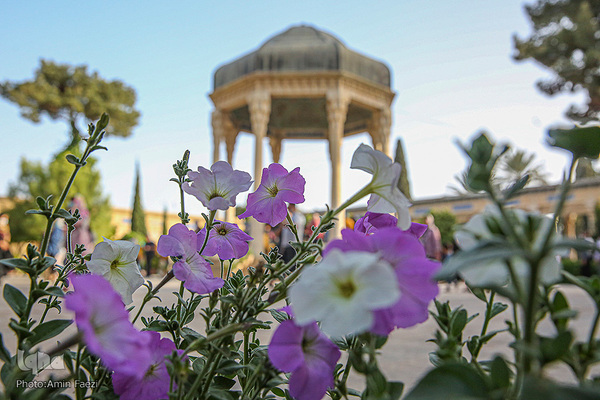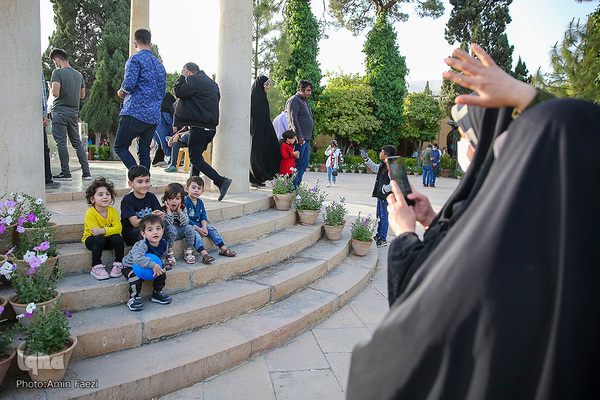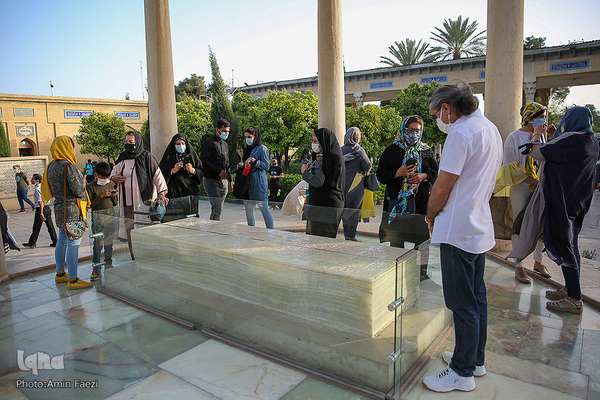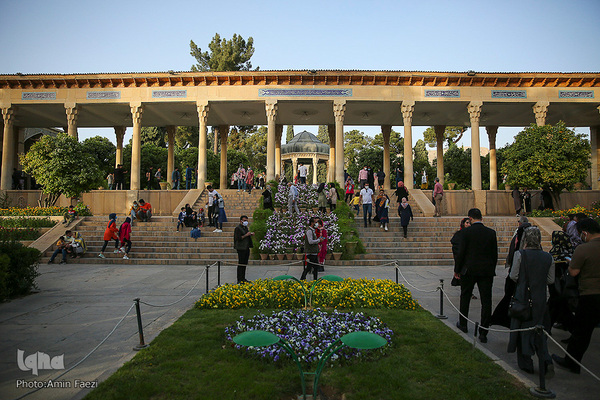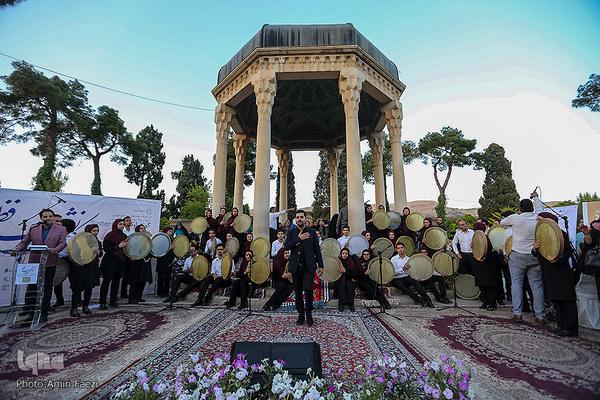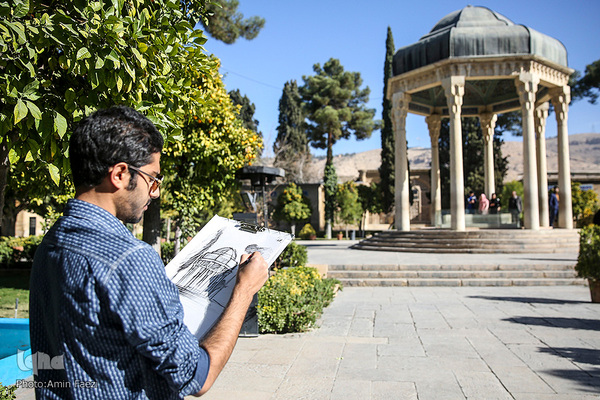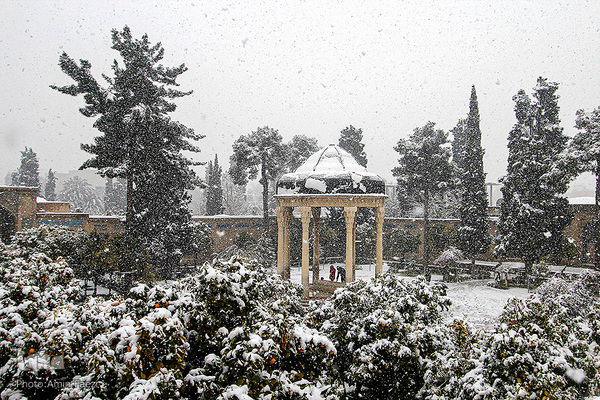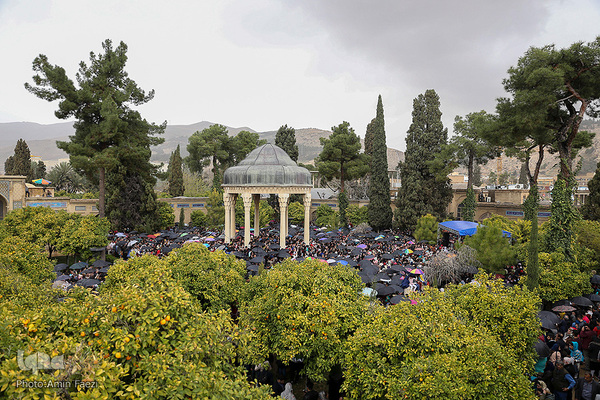Hafez Poetry Giving Off Scent of Orange Blossoms (+Photos)
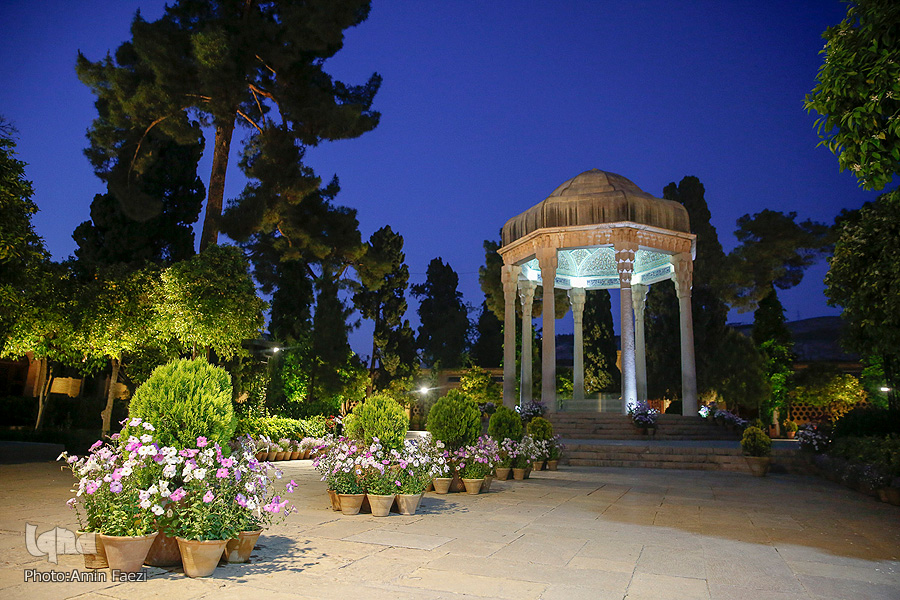
Born in Shiraz, Iran, in 1315, Hafez is famed for collection of his poems, Divan of Hafez.
In Persian language the word “Hafez” literally means someone who knows something by heart and Hafez’s profound knowledge of Holy book of Islam, Quran, awarded him with this title.
Whether Hafez was a Shia Muslim or Sunni is also a source of contention. With regard to the dominant branch of Islam at his Era being Sunni Islam, his hometown, and clues from his own poems it may be safe to assume that Hafez was an Ashʿarites and a follower of school of Shafi'i. However, despite that he was extremely fond of Ahl al-Bayt (literally meaning 'People of the House', and a term used to refer to the extended family of prophet Muhammad (pbuh)), and he was favorably disposed towards Shiite Mysticism rather than Sunni Sufism.
He wrote his poems in literary genre of ghazal. Ghazal, originating in Arabic poetry, deals with loss and the pain caused by separation as well as the beauty of love.
Hafez appears to be a Sufi (or as mentioned above a Shia mystic). Sufism is expression of mysticism in Islam. In Islamic context mysticism has intertwined with the notion of Hikmah, meaning wisdom, and mysticism and mystical elements are traced to Quran and the Islamic doctrine. As a poet who practiced mysticism ghazal was the most ideal style to communicate the ecstasy of divine inspiration.
Hafez is believed to be touched by both appearance and content of Quran. The word choice, rhythm and prosody in his poems resembles that of Quran.
Hafez is considered an early satirist as well. The ironic tone of his poetry and the theme of hypocrisy seemed to be used to criticize the ruling establishment of the time.
Interpreting Hafez work is not an easy task. For one, his artful use of figurative language such as pun (a form of word play that exploits multiple meanings of a term, or of similar-sounding words) and metaphor, makes it difficult to interpret his work straightforwardly.
And that is why few translations of his works have been successful as translating figurative gestures such as pun is proved to be intellectually demanding.
Some scholars see him as a Sufi and elucidate his poems mystically while some critics challenge this Sufistic view towards Hafez poetry.
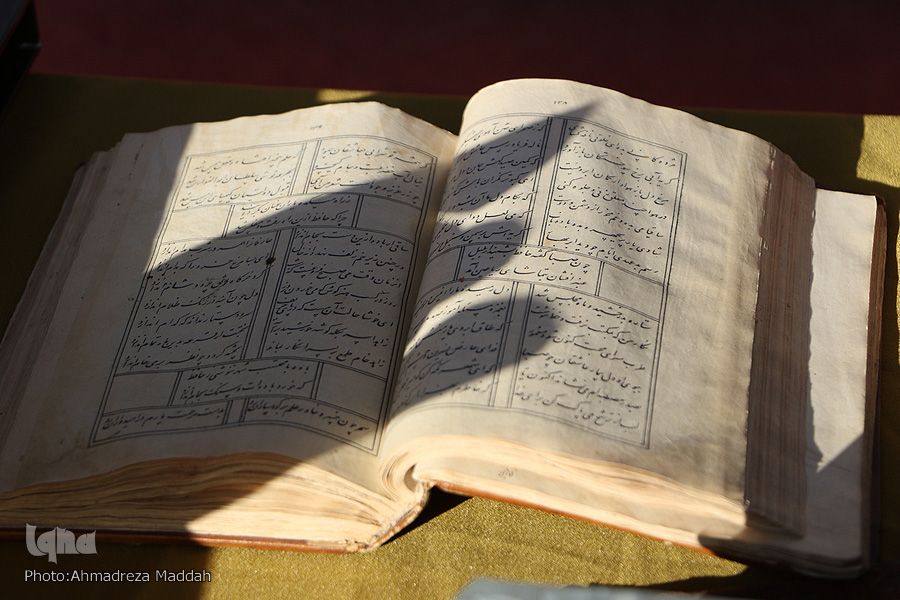
Therefore, it is a matter of controversy to decide to explicate his poems either mystically or literally.
Wheeler Thackston, (born 1944), an American Orientalist, has said that Hafez "sang a rare blend of human and mystic love so balanced... that it is impossible to separate one from the other".
Little is known about his life; however, it is easy to trace the marked, strong influence he had on Persian culture.
Hafez is one of the most popular poets in Iran. In almost all bookshelves in Iranians homes one can find a Divan of Hafez.
Every year, concurrent with Hafez Day marked on October 12, his devotees crowd together in his mausoleum to pay homage to the popular poet.
Divan of Hafez is also used for fortune telling and families unusually recite his poems in their gatherings on Nowruz (the first day of spring and the beginning of the new year in Iranian Calendar) and Yalda (the longest night of the year and marking the onset of winter).
His poems also inspired Iranian singers including Mohammad-Reza Shajarian.
Hafez's influence is not limited to homeland and definitely penetrated into other cultures as well. Hafez poems are adapted and translated in many other languages such as English.
William Jones, (1746 –1794) an Anglo-Welsh philologist and a scholar of ancient India, translated his work into English in 1771 which influenced westerns writers including Thoreau, Goethe, and W. B. Yeats.
Ralph Waldo Emerson (1803 –1882), an American essayist, lecturer, philosopher, abolitionist and poet has referred to Hafez as “a poet's poet”.
Moreover, Sir Arthur Conan Doyle, creator of the fictional character Sherlock Holmes, mentions Hafez in one his stories (A Case of Identity). Sherlock Holmes states that "there is as much sense in Hafiz as in Horace, and as much knowledge of the world".
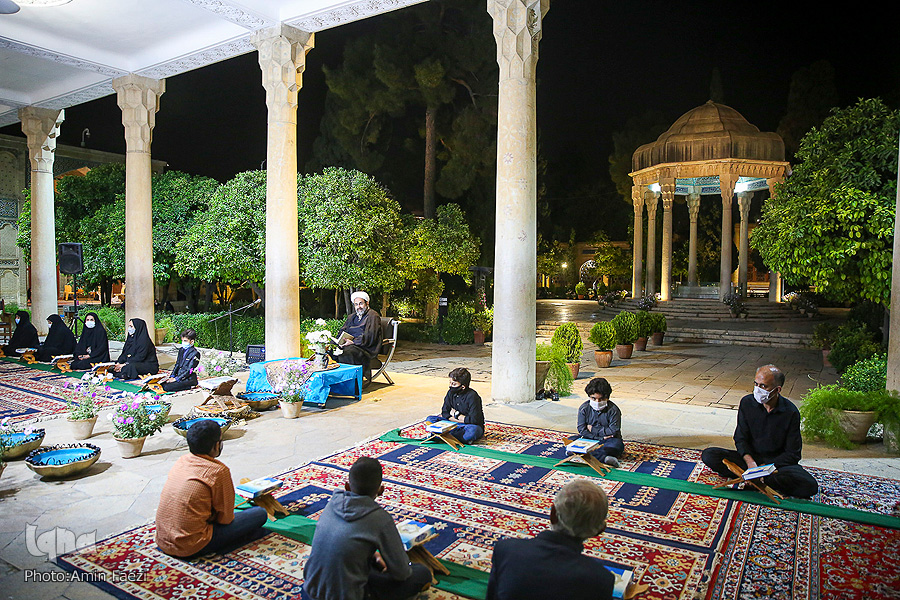
Faces of Love (2012) translated by Dick Davis, an English–American poet (born 1945), is the modern English edition of Hafez.
In addition, Peter Avery (1923 –2008), an eminent British scholar of Persian, translated a complete edition of Hafez, The Collected Lyrics of Hafiz of Shiraz, published in 2007, which won him a Farabi prize.
Hafez passed away in 1390. His tomb is located in his birthplace, Shiraz. His mausoleum, designed by French architect, Andre Godard, is surrounded by rose gardens, water channels, and orange trees, filling the garden with orange blossoms intoxicating scent early in the spring.
If you have ever met his grave, especially in spring, you can never open Divan of Hafez without smelling the delicate, pleasant scent of orange blossoms filling the room.



